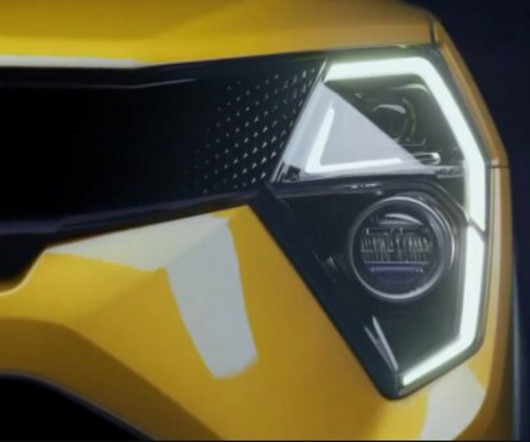ABB introduces Dynafin propulsion system to increase ship efficiency; mimicking movements of whale tail
Green Car Congress
JUNE 2, 2023
The new propulsion concept features a main electric motor that powers a large wheel rotating at a moderate 30-80 rounds per minute. This can deliver significant savings in fuel consumption and help to avoid emissions. The new concept is the latest addition to ABB’s portfolio comprising electric, automated and digital technologies.























Let's personalize your content